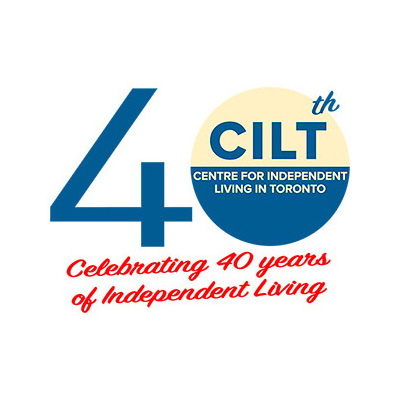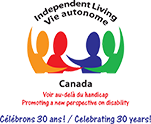Access Health a quarterly newsletter brought to you by CILT’s Peer Support Program. We hope to bring you current and pertinent news, tips and resources pertaining to health issues. As many of us know, living with a disability can be challenging, but as the years go by, and our bodies start to change, facing new challenges brought upon us by the aging process can be, at times, a harsh reality.
Access Health – Spring 2013
What is Chronic Constipation? Chronic constipation differs from occasional (short-term) constipation in that chronic constipation can last for months or even years rather than days. Chronic constipation symptoms vary from person to person. To some, chronic constipation means infrequent bowel movements; to others, it may mean hard stools or difficulty passing stools (straining). Still others may experience chronic constipation as a sense of incomplete emptying after a bowel movement.
Read on to find out more…
Download the PDF here: ACCESS Health Spring 2013
Access Health – Winter 2013
“At age 65 the Ontario Disability Support Program terminates and is replaced by Federal and Provincial Government income plans. These plans are not designed exclusively for people with disabilities but are being described in that context only.”
Read on to find out more…
Download the PDF here: ACCESS Health Winter 2013
Access Health – Fall 2012
“According to The Arthritis Society, some 2.9 million Canadian women are believed to suffer from some type of arthritis and the number is expected to reach 3.9 million by 2026—nearly twice the number of men. Theories abound, ranging from the belief that women’s weaker cartilage and tendons are the cause, right up to a link with estrogen. All are unproven, but the statistics are undeniable.”
Read on to find out more….
Access Health – Spring/Summer 2012
“In a provincial budget that notes Ontario is a “low tax” (and low service) province that spends the least on public services of any province in Canada, the government has unapologetically written a provincial budget that will lead to ballooning health care wait lists, more out-of-pocket costs, and unsafe conditions for Ontario patients.”
Read on to find out more….
Download the PDF here: ACCESS Health Spring-Summer 2012
Access Health – Fall 2011
“Patients who are acutely ill are being forced out of hospital. Some are pushed into unregulated for-profit retirement homes which have no standards of care. A man discharged from a Toronto hospital unable to feed himself starved to death in such a home last year. A dying Windsor woman was told care in a for-profit retirement home would be better than the care in hospital. Some patients are pushed out with the promise of homecare, much of which proves to be non-existent.”
Read on to find out more….
Download the PDF here: ACCESS Health Fall 2011
Access Health – Summer 2011
“Pressure sores are a MAJOR cause of concern for people with disabilities and those living in nursing homes. On the average, over one in five nursing home residents in the U.S. and Canada will have some kind of pressure sore. You should be moved or repositioned every two hours to prevent pressure sores.”
Read on to find out more….
Download the PDF here: ACCESS Health Spring-Summer 2011
Access Health – Winter 2011
In the past getting older was a not as large of an issue for people with disabilities as it is now, so how well will we live as we age? Now, people with disabilities are asking questions about the quality of our living and the quality of our aging. It is important that we keep ourselves as informed as possible on wellness, self care, health care, exercise and advocacyRead on to find out more…
Read on to find out more…
Download the PDF here: ACCESS Health Winter 2011
Download the Text Document here: ACCESS Health Winter 2011 – Plain Text
Access Health – Fall 2009
Complementary and alternative medicine, also called CAM, is enjoying a surge of popularity both in Canada and in the United States.
Integrative medicine is developing as a new form of medical practice. The standard form of health and medical care practiced in the United States is conventional medicine, also called “Western” medicine (its practice began in the Western Hemisphere) or allopathic medicine. When you go to a doctor who is an M.D. or a D.O., he/she will likely diagnose you and treat you based on the medical knowledge and experience she has gained through conventional education or practice, using drugs, surgeries or standard physical therapies.
Read on to find out more…
Download the PDF here: ACCESS Health Fall 2009
Download the Text Document here: ACCESS Health Spring-Summer 2009 – Plain Text
Access Health – Spring/Summer 2009
Welcome to ACCESS Health – a quarterly newsletter brought to you by CILT’s Peer Support Program. We hope to bring you current and pertinent news, tips and resources pertaining to health issues. As many of us know, living with a disability can be challenging, but as the years go by, and our bodies start to change, facing new challenges brought upon us by the aging process can be, at times, a harsh reality.
Read on to find out more…
Download the PDF here: ACCESS Health Spring-Summer 2009
Download the Text Document here: ACCESS Health Spring-Summer 2009 – Plain Text
All the above documents will open up in a new window.
To download and view the PDF documents provided, you may require the Adobe Acrobat reader in order to view and print the document.
You can download the free PDF reader at: www.adobe.com/products/acrobat/readstep2_allversions.html







